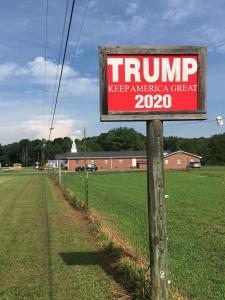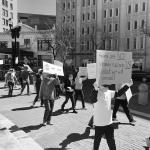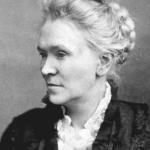What happens to American politics and culture when white southerners in the Bible belt quit attending church? What religious views do they adopt? How do they vote? And will the mass exodus from church that already seems to be occurring in the South make the country less politically polarized – or more?

This question is particularly relevant this summer because of two major news developments: the sex abuse crisis in the Southern Baptist Convention and the reversal of Roe v. Wade (which led almost immediately to the enactment of state abortion restrictions that made abortion almost completely illegal in much of the South and Midwest).
Twenty years ago, revelations of the Catholic Church’s sex abuse crisis accelerated a massive exodus of white northeastern Catholics that was already well underway, and it contributed to a secularization of New England culture and politics. A region that up until the late twentieth century had had some of the nation’s strictest policies on abortion and divorce became a national leader in expanding abortion access and legalizing same-sex marriage. The same phenomenon occurred more recently in Ireland, in the wake of that country’s clerical sex abuse crisis. A country that had had some of the highest church attendance rates and strictest abortion and marriage policies in Europe legalized both abortion and same-sex marriage, even as church attendance rates plummeted.
It might be easy to imagine, therefore, that something similar could occur in the southern Bible belt. As was the case in New England immediately before news of the Catholic Church’s sex abuse crisis broke, church attendance rates in the South were already falling before the crisis was fully publicized. Already, 30 percent of Southern Baptists “seldom” or “never” attend church, according to the Pew Research Center’s Religious Landscape Survey. The southern Bible belt, where white evangelicalism is overwhelmingly concentrated, is quickly becoming a region of unchurched or lapsed Protestants who may still hang onto their evangelical identity to at least a certain extent but who don’t think going to church is necessary.
But these de-churched Protestants are not adopting the political views of de-churched Catholics in the northeast. Instead, they remain strongly individualistic Republicans who still oppose abortion, even if some of their other views differ a bit from those of their churched counterparts. A careful study of these non-church-going white southerners might offer a clue as to what the politics of the South will look like during the next decade.
What the Data Show
I did a careful analysis of data from the 2018 General Social Survey (GSS) to find out the political and religious views of unchurched southern whites who still identify as Protestant. The GSS asks thousands of respondents from across the country a wide range of questions about politics, religion, and social views and behavior. By running the data through an SPSS or similar statistical software program, it’s possible to isolate responses for particular groups of people – say, white male Protestants in the Southeast who attend church only once a year or less, or New England Catholics who attend church weekly and vote Democratic. The survey includes more than a hundred questions on a wide range of topics, so if one wanted to look at the questions, say, about racial attitudes or the questions about personal prayer life, it’s easy to compare the differences in attitudes on those topics between particular groups of people. Political scientists and other social science researchers do this all the time. As a historian, I hadn’t done much of this analysis until recently, but I’m now finding it a very useful tool in my research.
So, what do the 2018 GSS data reveal about white southerners who still identify as Protestant but who never attend church or go no more than once a year? First, they’re numerous: According to the GSS survey, 45 percent of white southerners self-reported attending church no more than once a year. If “lapsed evangelical Protestant” were a denomination, it would be by far the largest religious body in the South.
Second, they’re not Democrats. Among the non-churchgoers (or once-a-year attenders) who voted in the 2016 election, support for Donald Trump outnumbered support for Hillary Clinton by more than 2 to 1.
They’re also deeply committed to color-blind conservatism and the politics of law and order. Sixty-six percent said that the courts in their area did not deal “harshly enough” with criminals; only 11 percent said the courts dealt “too harshly.” Seventy-seven percent agreed that it was “sometimes necessary to discipline a child with a good, hard spanking.” They opposed “preferential hiring” for Blacks by a margin of more than 4 to 1. Likewise, by a margin of more than 4 to 1, they agreed with this statement: “Irish, Italians, Jewish and many other minorities overcame prejudice and worked their way up. Blacks should do the same.” When asked why Blacks, on average, had “worse jobs, income, and housing than white people,” nearly half said that it was because they “just don’t have the motivation or willpower to pull themselves out of poverty.”
They were deeply suspicious of most institutions, including medicine, government, labor unions, religious organizations, and especially the media. Sixty-five percent said they had “hardly any” confidence in the press. The only institution in which they expressed strong confidence was the military; 72 percent said they had a “great deal” of confidence in the military.
Although they strongly supported legalizing marijuana and saw nothing morally wrong with homosexuality or premarital sex, the same was not true of abortion. Sixty-two percent opposed the legalization of elective abortion. A majority said that the Supreme Court had acted wrongly in ruling against classroom prayer in public schools.
Except for the views of marijuana and sex, most of these sentiments were also shared by white evangelicals in the South who regularly attended church. And, indeed, even the beliefs about the Bible did not differ too much between those who regularly attended church and those who did not. Eighty-nine percent said that the Bible was the inspired word of God; only 8 percent considered it a book of “fables” and “legends.” Nearly one-third said that the Bible was to be “taken literally, word for word.”
In short, the white Protestants in the South who don’t attend church anymore haven’t changed their politics or most of their religious beliefs. They’re still generally fundamentalistic when it comes to the Bible, and they’re still strong law-and-order, pro-military Republicans who believe in a southern civil religion where people are free to pray in schools but not get abortions. They still identify as Protestant Christians – and, based on other surveys, they probably still call themselves “evangelical” (although the GSS survey didn’t ask directly about that) – but their understanding of evangelical Protestant Christianity has taken away most of the grace and left behind a deeply suspicious individualism, where law and order and self-defense are paramount.
Conservative Individualism without Trust
This strong individualism can be seen in the areas where they most clearly differ from their churchgoing counterparts. First, sexual responsibility: Even while retaining their opposition to abortion, white Protestants in the South who go to church no more than once a year have rejected traditional evangelical teaching about the form of sex that many of them are most likely to personally want to engage in: premarital heterosexual sex. Sixty-eight percent said that premarital sex between a man and a woman was “not wrong at all.” By contrast, only 21 percent of white Protestant southerners who attended church weekly or more thought that heterosexual premarital sex was “not wrong at all,” and 50 percent said it was “always wrong.” Those who never (or hardly ever) attended church overwhelmingly favored marijuana legalization, while a majority of those who attended church weekly did not.
But perhaps the most interesting contrast came in the area of personal trust in other people. When asked, “Do you think most people would try to take advantage of you if they got a chance or would they try to be fair?,” 54 percent of white Protestant southerners who attended church no more than once a year said that most people would try to take advantage of them. In response to the question, “Would you say that most of the time people try to be helpful or that they are mostly just looking out for themselves?,” 58 percent said, “They are mostly just looking out for themselves.
The responses from white southern Protestants who attended church every week were almost the direct opposite of these. Sixty-two percent said that most people would “try to be fair” rather than take advantage of them, and 57 percent said that most of the time people “try to be helpful.” Those who attended church weekly were also more likely to vote than those who hardly ever attended.
It seems, therefore, that when white southerners quit attending church, they don’t lose the church’s political conservatism, moralism, or individualism. Instead, they become hyper-individualistic, strongly devoted to law and order, and overwhelmingly politically conservative (if they vote at all). But they’re also cynical and distrustful of others.
Why Have De-Churched White Southern Evangelicals Remained Conservative?
Why did northerners become more politically liberal when they left church, while white southerners have remained just as politically conservative and individualistic as ever? Perhaps it’s because when people leave church, they retain the political ideology and moral orientation that they imbibed from their religious community, even if it survives only in a distorted form. The liberal Democratic politics of the northeast reflect the theology of communal obligations that both mainline Protestant denominations and the Catholic Church championed for most of the twentieth century. Even when people have left church, they have retained those political sensibilities in secularized form.
By contrast, the white evangelicalism of the South is deeply individualistic, and it draws on a southern white individualism that is even older than southern evangelicalism. When whites in the South leave church, they don’t usually become political liberals. Instead, the individualistic moralism that they have imbibed from their regional milieu survives in secularized form. They even champion a generic civil religion reflective of their region, along with a harsh view of abortion. But they also become deeply distrustful of others and cynical about all institutions except for those that carry guns.
Contrary to popular stereotypes about religion’s polarizing effects, southern churches may actually temper these inclinations at times. To be sure, the majority of southern white churches have encouraged the Republican political ideology that contributed to Donald Trump’s election and the maintenance of structural racism. But at the same time, even the most politically conservative churches have encouraged a sense of community that encourages people to be concerned for others and to trust other people. They have encouraged sexual fidelity and have frowned on self-indulgence, especially when it comes to alcohol and marijuana. When people leave church, they retain the moralism – at least insofar as it pertains to other people – but lose the sense of self-sacrifice and trust in others. They keep their Bible, their gun, their pro-life pin, and their MAGA hat, but also pick up a condom and a marijuana joint and lose whatever willingness they had to care for other people in community.
For decades, many pundits have warned about the political dangers of a southern Christian Right that was intent on blurring the boundaries of church and state. But whatever those dangers might have been, perhaps the greater threat to democracy in the South right now is a de-churched populist right that is just as angry about efforts to correct racial injustice and even more individualistic.
Whether we call it “evangelical” or simply “southern populist,” this post-church southern Protestant right is not going to go away just because the Southern Baptist Convention loses members. In fact, it’s likely to become stronger than ever.













